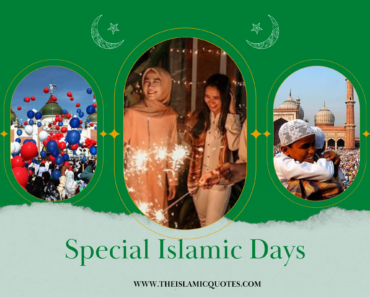Types of sadqah: Charity and financial help of the needy is a core value and acts that are held in great regard in Islamic practice. Such charity is divided into two types in Islamic practice; zakat and sadaqah. Zakat is an obligatory tax that is paid to the needy and is of fixed proportions of one’s wealth and assets. Zakat is only obligatory on some earning men and women who meet the requirements of Nisab. It can only be given to the eight categories of people mentioned in the Qur’an.
What Are The Different Types Of Sadqah?
In our last post we talked about Islamic Quotes on Charity-Aayahs and hadiths on Sadqah, and today we will be looking at the different types of sadqahs and ways to give sadqah.
Sadaqah is a voluntary act and is paid out of goodness and kindness of heart. It is highly encouraged and emphasized in the Islamic community. Sadaqah is the general name given to financial aid or expenditure that is done in the name of Islam or as an act of worship. There are two broad categories of sadaqah; namely Sadaqah Wajibah and Sadaqah Nafilah. They each have their types and rulings.

3 – Sadaqah Wajibah
Sadaqah Wajibah is mandatory and therefore similar in some ways to zakat. This sadaqah must be spent on the same eight categories of beneficiaries as zakat, however, there is no condition for them to be Muslim. Sadaqah Wajibah furtehr includes, Sadaqatul Fitr, Nadhr, Fidyah, Kaffarah, Uddhiyah, Dam and Badanah.
- Sadaqatul Fitr
This is charity and part of Prophet’s PBUH Sunnah with the status of wajib. It is, therefore, a duty upon every practicing Muslim to pay Sadaqahtul Fitr. it is due to be paid before the Eid prayer. It is preferred, however, it be paid a few days before Eid so that the needy and poor can enjoy the Eid festivities. The amount paid should be about the value of 1.6 Kg of wheat or 3.2 Kg of barley.
- Nadhr/ Religious Vow
This is a type of charity that is self-imposed. If an oath is taken for giving Sadaqah then such a charity becomes a sadaqah wajibah. It is often done to express gratitude or shukr. However, if unpaid will count as a sin and a kaffarah will have to be paid.
- Fidyah
Fidyah is given as compensation for missing a fast, prayer or a minor mistake in Hajj. its value is the same as sadaqatul fitr, that is, 1.6 Kg of wheat or its value in cash. If a person is deceased and, therefore, could not complete his/her fasts, sadaqah is given out of a third of the deceased’s wealth. Further, sadaqah nafilah can be given on behalf of the deceased or from his/her estate where the giver and deceased is rewarded.
- Kaffarah
This is major compensation, a step above Fidyah. It applies to mistakes and negligence such as breaking fast or oaths intentionally. For breaking of fast, the kaffarah would be to feed 60 people in a day or pay them the amount that is in sadaqatul fitr. Kafafarah is further divided into greater and lesser kaffarah, each with its rulings and requirements.
- Udhiyyah
This is also generally referred to as Qurbani or sacrifice. It is mandatory for all mature Muslims on the day of Eid ul Azha who possess nisab or the minimum threshold of wealth for paying zakat. It requires the purchase and sacrifice of a sheep, goat, cow or camel in the name of Allah. You can consume the meat of the sacrificed animal yourself and also keep some for your family while distributing the rest among the needy and the poor Muslims.
- Dam and Badannah
Dam is similar to udhiyyah in that it involves sacrificing an animal. It differs, however, in that it is done and carried out by those performing hajj. There are two types of dam; one of which is compulsory on those performing hajj. This is called dam ash-shukr. The second type is of dam is for compensation for mistakes during hajj. Badannah is a larger sacrifice i.e. sacrifice of a large animal and is done in penance to three specific acts.
2 – Sadaqah Nafilah
This is the voluntary and optional form of sadaqah. This includes alms to the poor, philanthropic advents and community service endeavors. There are no specific guidelines for sadaqah nafilah and can be spent on anyone, not just Muslims. It can also be bequeathed in one’s will and, therefore, only be up to one-third of one’s wealth and assets. The following are types of sadaqah nafilah
- Lillah
This is the sadaqah given to institutes or organizations devoted to philanthropy or Islamic education; e.g, madrassahs, masjids, hospitals, schools, trusts e.t.c. This does not require a specific person to obtain possession of the sadaqah payment.
- Waqf
Waqf is the allotment of wealth or assets for a specific cause. It works similarly to trusts and requires trustees to watch over them. It is different from lillah in that ownership is not transcribed to any person or institution rather only benefits are outlined.
- Aqeeqah
This again involves the sacrifice of an animal as gratitude for the birth of a child. The locality and close members of the family can be fed, but preference should be given to the poor.
- Sadaqah for Removing Difficulties/ Forgiveness of Sins
This is done in the name of Allah to seek his refuge and ease the difficulties of life. It is also done to seek the forgiveness of Allah for any negligence and past sins.
1 – Sadaqah Jaariyah
This is sadaqah done in the cause of any long-term goals. e.g building wells and planting fruit-bearing trees. In essence, it is an act that keeps on giving. It can include sponsoring the education of the needy, building mosques, and spreading Islamic awareness.
How to Give Sadqa Without Money?
This type of sadaqah also does not require having capital or money. It can also be in the form of:
- Smiling
- Removing an obstruction from a path
- Giving a good lesson
- Feeding the poor
- Educating someone
- Talking softly
- Giving water to the needy
- Helping orphans and widows
- Showing respect, especially to parents
- Helping others with your time and energy is also sadaqah jaariyah as it keeps on building and improving even after one dies.







